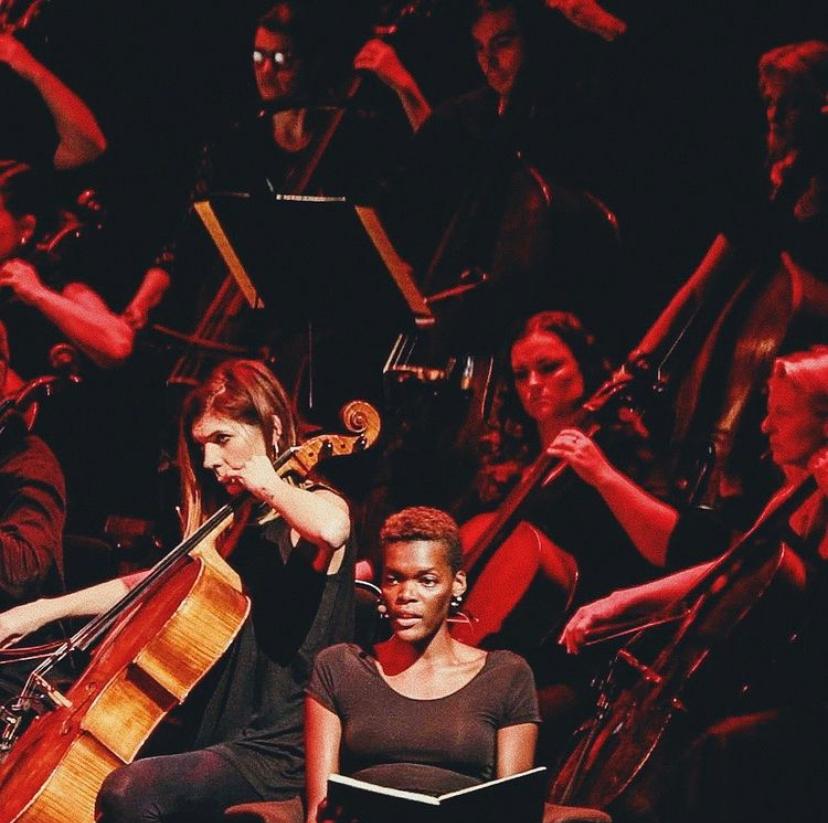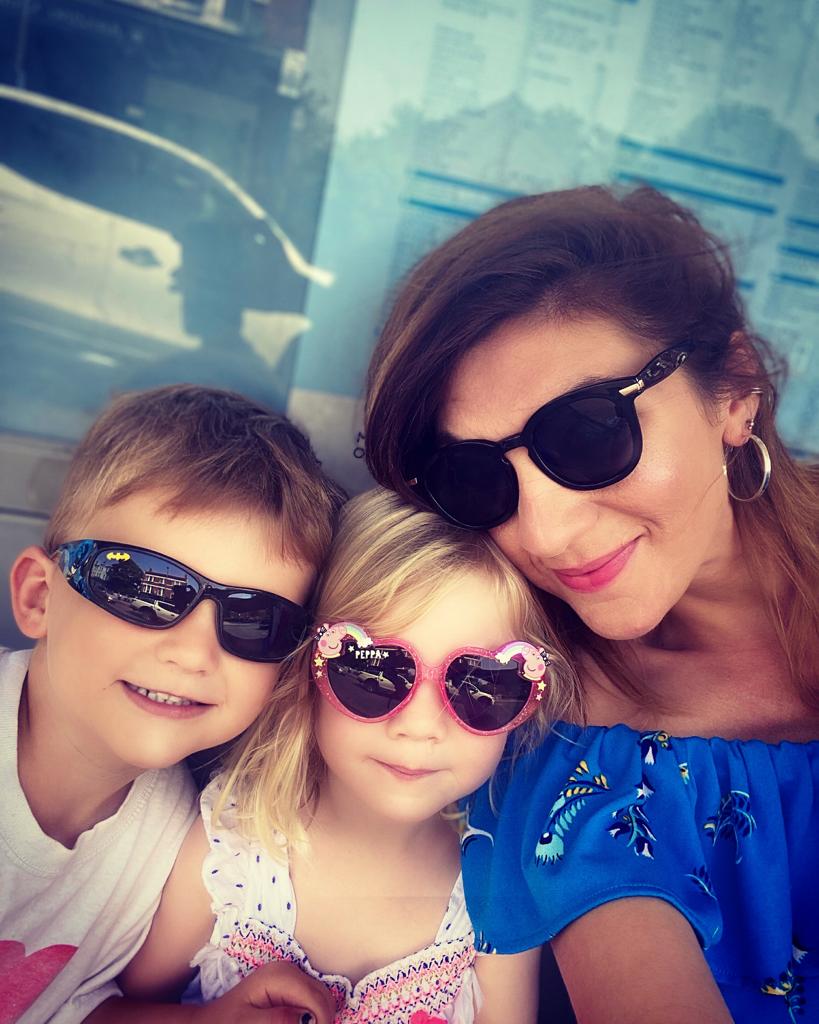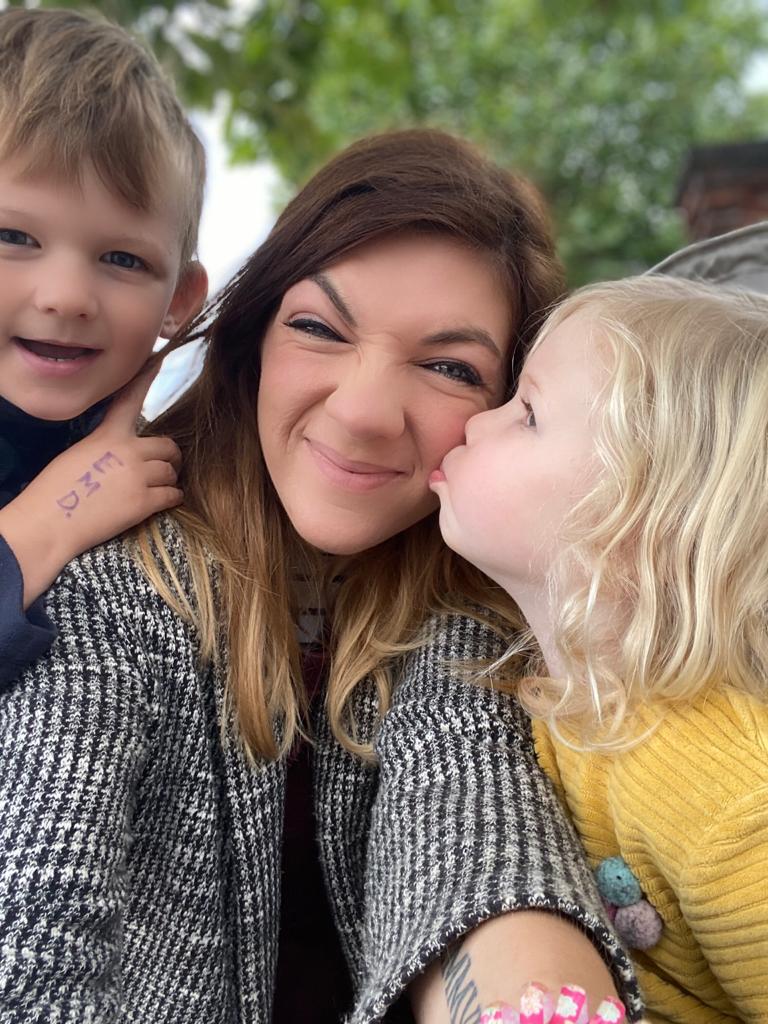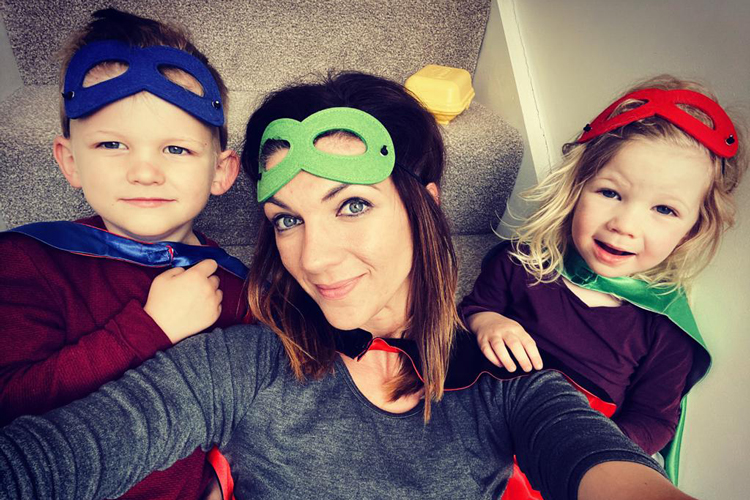Join Rachael and an all-female panel of music industry and mental health experts at our “Women in Isolation” webinar on Thursday 25th March at 6pm. Register for FREE here.
Later this month I will be chairing a webinar entitled “Women in Isolation” for Music Support, the mental health charity that supports members of the music industry in need (further details on that here). To think about the impact of isolation almost exactly one year to the day that the UK went into full lockdown feels appropriate to me. I’ve found this year so difficult that I haven’t felt able to talk about it until now, buoyed by the beginning of Spring, my children’s long awaited return to school and the knowledge that millions of people all over the world have been vaccinated. In preparation for the event I wanted to write down what I’ve learnt in the past year so I can at least appear to know what I’m talking about. We’ll discuss how awful a word “webinar” is at a later date.
I feel I must preface this little bit of writing with a disclaimer which is that I’m well aware that many people have faced a harder time than me during this pandemic. I have not lost anyone close to me to COVID19. I have been able to pay my rent aided by Universal Credit when it became clear I was ineligible for the SEISS grant. I’m not an underpaid nurse in an ICU, watching people die of this horrendous virus. I KNOW that I’ve been extremely fortunate in many ways. And yet.2020 brought me to my knees. When I think back to March last year, my body does an involuntary, all encompassing horror-clench, that starts at my scalp and ends at my (curled) toes. Just to give you some context, at the beginning of last year, I was already at capacity. My children were 2 and 5. I was in my 13th year of recovery from alcoholism. We’d moved house twice during the previous year, since I separated from my ex-husband and my divorce was finalised a month before the first lockdown. I was working as a musician, as a deputy in the West End, alongside other freelance session work. My working week would change at the drop of a hat and a lot of my professional life involved being “On Hold” until the day before the engagement. I had my children 80% of the time and relations with my ex were fraught, to say the least. I’d recently started seeing a therapist, and she is good, so I felt like several layers of skin had been taken off as I tried to process the end of my marriage. I was struggling to get to enough recovery meetings. I felt stretched in all directions and my body felt tired, and sick, a lot of the time. Like many working mothers I know, I ran on adrenaline and black coffee so I could show up where I was needed, but I felt frayed at the edges. This frenetic way of life served my addictive self, the one that wants me to be in active addiction, quite well. I felt like I was too busy to eat properly and my stomach was permanently in knots, so I often didn’t bother. With all the recovery things I had to do to stay sober, along with making the house nice and doing the laundry and the shopping and keeping on top of all the school and financial admin alone, time for resting was in short supply. My youngest child didn’t sleep well and I was exhausted. I habitually woke up feeling like a used tea bag. Despite all this, we’d recently, finally, settled into a rhythm. We’d moved up to North London and found community and a great school. I was near work, my family and my support system. I had a job in a show at the Savoy theatre coming up in a brilliant band and I felt like maybe, just maybe, I could start to exhale. And then, Covid hit. The work and income disappeared overnight. Schools closed and I was responsible for holding up the feeding, entertaining and mental wellbeing of my kids, all day long. Overnight my support system was unavailable to me and I was alone. I had two children to feed, a massive North London rent payment to make and other than monthly child support, no money coming in. There was a long, uncertain period while the powers that be decided whether or not I was eligible for Universal Credit. For several weeks, I had no idea if I’d be able to pay my rent and I borrowed money from friends and family to do the constant grocery shopping and pay the bills. I spent those evenings after my kids had gone to bed googling temp jobs and frantically making calculations. The numbers told me I’d have to pay to go to work once I’d considered the childcare, not that there was any available. When I wasn’t panicking about money or cleaning up debris, I was in 12 step meetings on Zoom, with other bewildered recovering addicts. Every time I turned on the news, I felt like I was disappearing into a vortex so I had to turn it off again. Musicians around me were putting videos of themselves performing flawless renditions of the classical canon on the internet and finding alternative outlets for their creativity. I could barely create a ham sandwich.

Life in our little flat in East Finchley rapidly simplified. I had no choice but to surrender to the omnishambles of uncertainty and try to be present with whatever task was directly in front of my face. Without the trappings of my work life and all the rushing, I was forced to do what every addict dreads, which was of course, to FEEL MY FEELINGS. From what I can gather from over a decade of listening to other recovering people, as a general rule, we addicts favour the extreme ends of the emotional spectrum. We are comfortable with euphoria or numbness. It takes work to sit comfortably in the middle, with things like boredom, or sadness. Sometimes despite years of recovery, many of us are still running from our feelings, afraid they will consume us and we won’t cope. We take the edge off our chemically sober lives with the never ending game of whack-a-mole that is cross addiction. We use work, food, sex, busy-ness, codependent relationships and obsessive thinking to avoid facing ourselves. This year put paid to a lot of those strategies and without the ballast of physical meetings, many alcoholic addicts were forced back out there into chemical addiction. Relapse during the pandemic has been commonplace. Unable to inoculate myself with booze, I tried my go to methods of managing the emotional chaos (smoking, not eating, eating too much, obsessing, codependency etc) but none of them worked. In fact they all became so problematic so quickly that I had to stop them ALL and instead, engage with 12 step recovery in a different, more involved way, in order to survive.
The warm and sunny days of lockdown mark one meant at least that we could be outdoors a lot. I knew enough local parents from my son’s 6 months in reception to bump into people in the nearby woods and have a chat. A few alcoholics started a semi legal outdoor 12 step meeting and I attended it three times a week, sometimes with my kids in tow interrupting the sharing with questions like, “Is everyone’s Mummy an alcoholic?” We had a gentle routine based around meals and baths and going to the woods and then my ex would come and pick them up on a Friday evening, when I was on the floor, energy wise, and desperate for a break. They’d trot happily into his car with their backpacks and I’d close the door and sit on the sofa among the plastic debris and half eaten cucumber sticks and simply reel from the previous three days. Then I’d spend a long time cleaning the house. Bleaching bathrooms and laundry and hoovering and mopping, pressing the domestic reset button in time for their return on Sunday morning. I was incredibly grateful for the respite and very aware of how many of my single mum friends were not as lucky to have a father as involved as my children’s father is.


1. I can cope with my feelings.
I’m not sure why this is, but it’s taken a short but very dangerous drinking career, 13 years of sobriety, 2 pregnancies, 2 births, a divorce, countless sessions with mentors and therapists and a global pandemic to realise: I can’t escape myself. Wherever I go, there I am, bloody well feeling things. No human person can take the feelings away or mend any of the broken bits. I’ve been forced this year to feel the things. Let all the mess just be there and not try and fix it. None of it is permanent. None of it will kill me. I know this sounds basic to those of you who are functional non addicts. I hear people in their 30th year of recovery struggling to trust their bodies and minds to process their pain. I feel like this year has been an accelerated resilience programme for me. Maybe one day I’ll look back on it as a gift. Maybe I’ll become an astronaut. Anything is possible.
2. If I want to be happy, I have to meditate.
Despite meditation being firmly embedded in the 12 step programme, I’ve actively resisted it since 2007, for the reasons outlined in my previous point. I didn’t want to sit still. Be in my body? No, thanks. It’s uncomfortable there. When I had babies I had a marvellous excuse because I honestly struggled to have a wee without interruption, so the idea of meditating was laughable. Since last Summer, I’ve been trying to meditate every day, when my children eat breakfast. I do a guided one because I’m not Zen enough yet to sit and be with my breath unaided. Meditating has been powerful for me because it’s given me some choice in my thought life. I was very attached to my thinking until recently. I liked to think that I had a good brain and therefore I could think my way out of any problem. This isn’t true. My first thought is usually one that involves fear, shame or self destruction and it’s best to watch it pass without judgement, if I want a shot at living peacefully.
3. Eat breakfast.
I’ve recently discovered overnight oats and I’m insufferable about it because my mood and weird sugar cravings and stomach knots have changed so dramatically. Again, people told me to start my day with oats in 2007 when I got sober. My parents have spent my entire life making me food and telling me to eat breakfast. Inexplicably, it’s taken me until now, my 38th year on this planet to adopt this radical new way of life.
4. Be a “good enough parent”.
I can’t be everything to my children. I can’t act with enthusiasm about baking cupcakes when in reality I’d rather be having a smear test. I’m not in charge of their feelings. I can fiercely love them and be honest with them and try hard to teach them that kindness to others and themselves is the most important thing. But that’s about it. I’m so utterly flawed. Before I had kids, I was full of hubris about what kind or parent I’d be. There’s nothing like finding yourself yelling at a 6 year old for writing a version of Rapunzel too slowly to make you question your parenting abilities.
5. Rest if you’re tired.
Again, sounds basic. However, the oppressive to do lists that swirl around my head from the moment I open my eyes in the morning means that I fight my body when it’s tired. I feel guilty for resting. Some days when my children have been with their Dad and I haven’t had to work, I’ve felt unable to do anything. I’ve been foggy headed with leaden limbs and unable to force myself out. My body has been shouting at me to go to bed and this year, I’ve had to obey it.
6. To people who menstruate: Don’t underestimate the power of your hormones.
Brace for period chat, everybody. Strap in. Now, I know for a fact that I’m not alone in finding that this year, my hormones have been ALL OVER THE SHOP. They’ve always been a source of confusion and I’d subconsciously placed my reaction to the menses in the bulging mental file entitled “Personal failings.” This year the stress has knocked my body in such a way that I’ve felt exhaustion, despair and incandescent rage every month before my period. I’ve done some reading, some cycle-tracking, some supplementing and some shame reduction about it. My kids were with me so much while I navigated this that in the end I said, “Guys. This is the week of the month where
I’m really tired and grumpy. If you don’t want me to shout like a madwoman, you may have to help me by putting on your shoes the FIRST TIME I EFFING WELL ASK YOU TO.” I realised that maybe I’d gone too far with this in the summer when we bumped into some friends at a playground and my son greeted them with, “Be nice to my mum. Her vagina is bleeding and she feels very tired.” He was 5 and a half. He probably knows too much. But also. What a guy.
7. Let it drop.
My children want me just to be with them. With the emphasis on be. They are never happier than when I STOP. When I stop trying to homeschool, stop trying to be enthusiastic supermum, and let it all drop. We go to bed together and listen to music. We watch Toy Story movies. Sometimes we make fajitas and have them on a picnic blanket in the living room. We do a lot of jigsaws and we read a book called “The Day the Crayons Quit” on repeat. There’s no crafting, because I’m not a crafting Mummy. It’s not perfect. I’m not perfect. They don’t care.
8. Accept all the help, in whatever shape it appears.
When we were allowed support bubbles, my amazing Mum and Stepdad immediately offered their services and dutifully took my kids away from me for one night a week. I felt guilty sometimes about it and worried about knackering my Mum out and for feeling relief that my kids weren’t with me. My Mum pointed out to me that what we as parents have been asked to do this year is physically and mentally impossible. “Even in the war, they went to school!” she opined. I gave up trying, and things felt easier. My kids enjoyed a lovely relationship with their grandparents and I had a window to sleep/go to the supermarket/breathe. Similarly my lovely next door neighbours have left food on my doorstep, looked after the kids for 5 minutes so I can nip to the shop and crucially, offered to wheel my bins across the car park to the main road every Tuesday night for bin day. I let them do it all. I need all the help I can get.
9. If in doubt, write it out.
Under my new recovery regime, I started writing a daily inventory (again, this was suggested to me about 5 minutes after I got sober and it’s taken me 13 years to actually commit to it). You don’t have to be an addict to benefit from this. Every night I spend roughly 15 minutes writing three lists about my day the first being: Things I did well. This doesn’t have to include anything high falutin. Mine often begins: I washed the kids’ clothes. I paid a bill. I ate a green vegetable. It all counts, particularly in lockdown. Second, I write: Things I can improve e.g. I was short with the person on the end of the phone when I paid the bill because I’d been on hold for 20 minutes. I was impatient. The third list is a gratitude list. Even if the day has felt like a total shit festival, I can always find at least 5 things I’m genuinely grateful for. I send this list to two people I trust in recovery every night. If I need to make an amend to anybody about anything, this will be reflected back to me in the process of sharing my day. The inventory has done more for my self esteem than CBT, analysis or any amount of professional success.
10. THIS IS ONLY POSSIBLE ONE DAY AT A TIME.
I thought I knew this more than most, what with being an ex lush and everything. The prospect of the most recent lockdown was very dark. I felt utter despair. On the day it was announced, I felt like I’d spent all my resources and I wouldn’t survive it again. I rang my sponsor, crying and desperate, and she reminded me of the first 90 days of my sobriety when I was counting the minutes and existing between meetings. How did I do it? One day at a time. Sometimes five minutes at a time. When the minutes were lonely and excruciating, I picked up the phone and felt less alone with it.
I know we’re not out of the woods yet, Covid wise. The aftermath is going to protracted and grim as we navigate the re-entry into normality. I’ve survived this year because I’ve had PEOPLE. Recovery people. Good friends and family on the end of the phone. A therapist who reduced her fee to ten pounds per hour when this all started so she could keep supporting me. My Mum and Stepfather who continually step in to help me with the childcare. Because of my history of desperate piss artistry I’m good at asking for help and the help has been there. I’m all too aware that many I know have not been so lucky and this period of isolation has been a time of huge suffering. I have nothing wise to conclude with other than, I survived and I’m grateful. Things are different now, in the world and in my head. I didn’t have to pick up a drink, which for someone like me, is a miracle.
Join Rachael and an all-female panel of music industry and mental health experts at our latest webinar, “Women in Isolation” on Thursday 25th March at 6pm. Find out more and register for FREE below.
